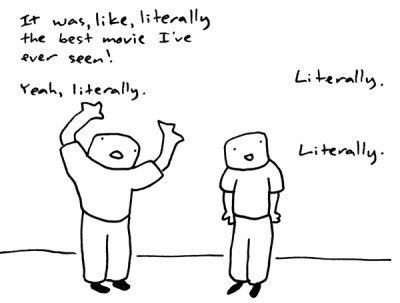
English is one of Kenya’s national languages, the other being Swahili, and is taught to and spoken by majority of the population. Most of us have English as out second or third language and Kenyans are known globally as one of the people most affluent in the language. Despite all this, we often gravitate to using some words or rather misusing some words depending on the current social situation. Here’s an example of a few of these words.
1. Ratchet
In the dictionary ratchet is a mechanical device that allows continuous linear or rotary motion in only one direction while preventing motion in the opposite direction. But most of us are only aware of it’s urban meaning i.e A diva, mostly from urban cities and ghettos, that has reason to believe she is every mans eye candy. Unfortunately, she’s wrong.
In Kenya, ratchet has taken a turn to mean misbehaviour especially when describing it in women. If a woman, get’s drunk or passes out in the club she is unfairly (most times) labeled ratchet.
2. Socialite
This is my favourite one. According to the Merrian-Webster dictionary, a socialite is someone who is well-known in fashionable society and is often seen at parties and other social events for wealthy people.
The origin of the word was based on birth, breeding, education, and economic standing. Socialites were born into wealth, most of them, and they spent most of their time socializing among their upper class. The lines between being a socialite and celebrity with an exuberant partying lifestyle have since become blurred due to the influence of both popular culture and the media, particularly when the status of being a celebrity is largely due to that lifestyle.
In Kenya, the term is misused on our so called celebrities. There is no clear set guide lines on what makes one a socialite thus we’ve ended up calling all manner of people socialites outside the term’s definition.
3. Otherwise
Have you ever been in a conversation with someone and then at the end of the conversation, during the awkward pause, the person throws in “otherwise” to try and bring in a different subject. That’s one of the ways you know you’re in a conversation with a Kenyan.
Otherwise is either used as a way of showing how a sentence or clause is related to what has already been said: We must hurry; otherwise we’ll miss the train or as an ordinary adverb: You’re in love with Robert. It does no good to pretend otherwise.
4. Honourable
Honourable is meant as a term of respect for those in leadership positions. In Kenya it is reserved for politicians and statesmen and women but is often misused by those in positions of influence.
5. Tribalism
Tribalism is the state of being organized in, or advocating for, a tribe or tribes. In terms of conformity, tribalism may also refer in popular cultural terms to a way of thinking or behaving in which people are more loyal to their tribe than to their friends, their country, or any other social group.
In Kenya, tribalism is used negatively in place of the term negative ethnicity which is more appropriate.
6. Feminism
Feminism is the belief that all people are entitled to the same civil rights and liberties and can be intellectual equals regardless of gender. Unfortunately, feminism has been negated and reduced to the thought that is a fight against men. This is not the case in Kenya alone but across Africa.
7. Literally
Literally is meant to be used in a literal sense or manner or in effect. Since some people take first meaning to be the opposite of second, it has been frequently criticized as a misuse. Instead, the use is pure hyperbole intended to gain emphasis, but it often appears in contexts where no additional emphasis is necessary.
8. Depressed
We need to draw the line between being stressed and depressed. Depression is a serious medical condition in which a person feels very sad, hopeless, and unimportant and often is unable to live in a normal way. However the term is mostly misused to mean when one is stressed and thus people don’t look at depression as a mental condition.
9. Artist
“Mimi ni artist”, you will hear someone say. These people write a few poems here and there, sing covers for songs or are aspiring rappers. These are mainly young people in Kenya who feel the arts as a place they can make a quick buck but end up misusing the term. There are people who have art as their full-time careers and these are the true artists.


